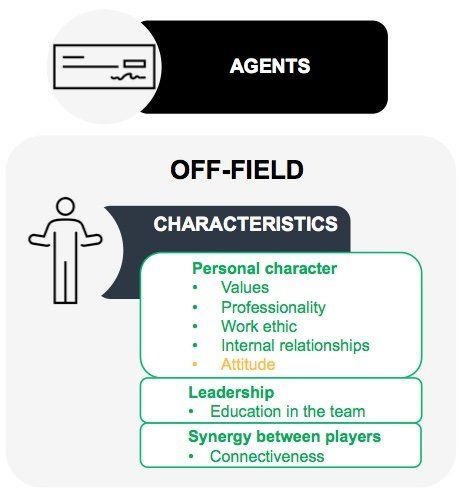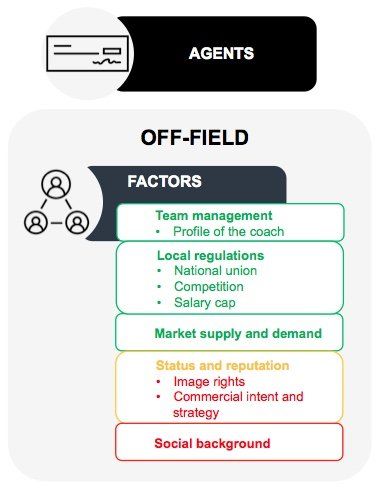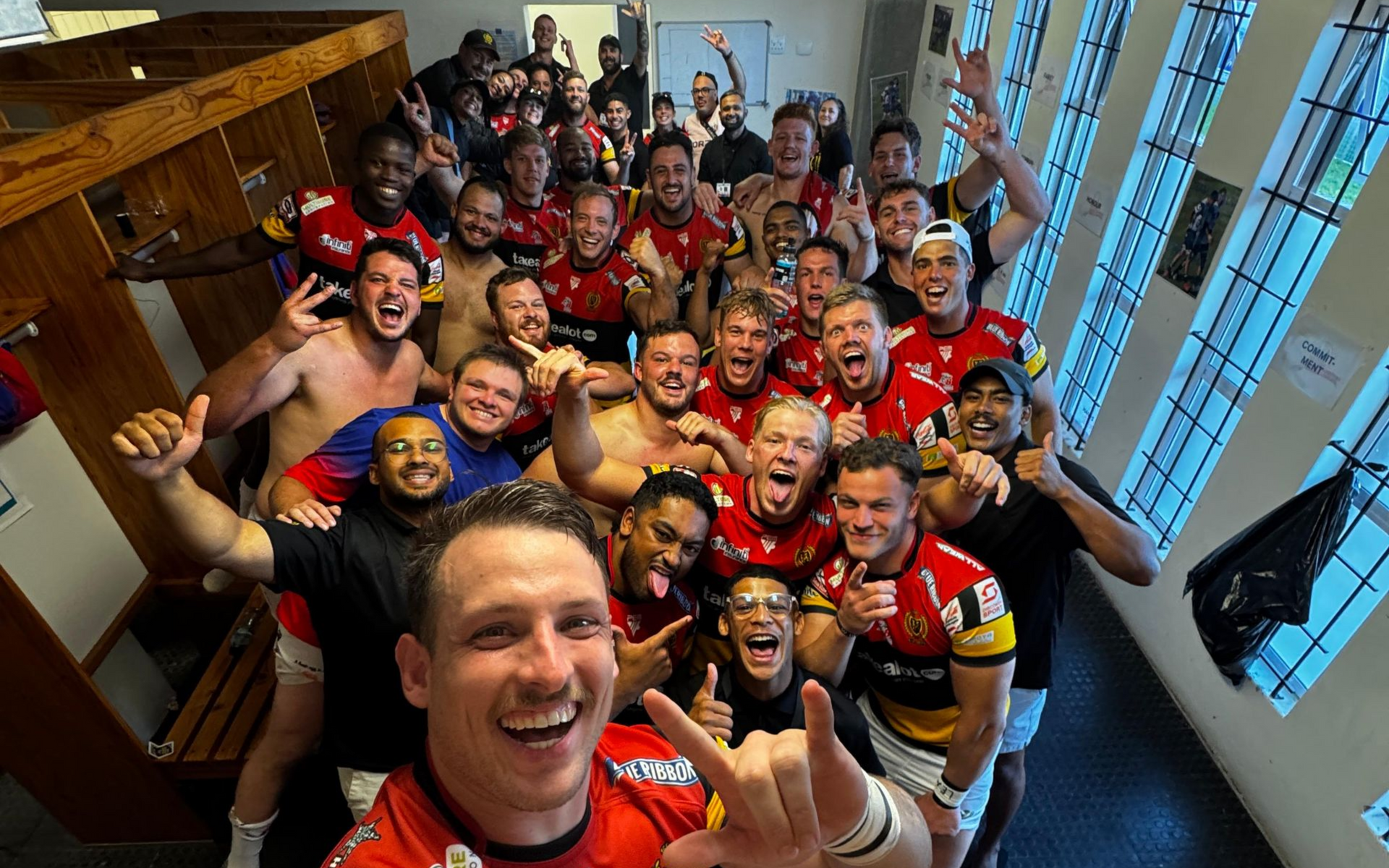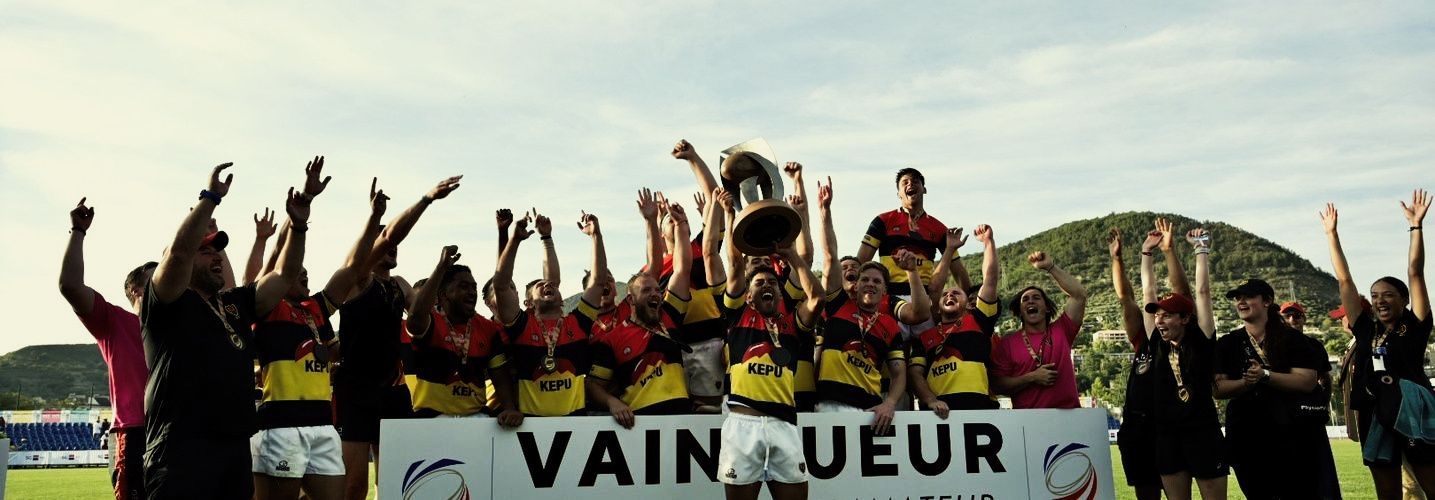What determines the monetary value of a professional Rugby Union player? – Part 4
Off field characteristics and factors determining the monetary value of professional Rugby Union players as mentioned by Agents representing Rugby Union Players.

Figure 1: Off-field characteristics as highlighted by professional rugby agents.
2. Off-field Factors (Agents)
a. Team management
“At the end of the day the head coach is equipped with the responsibility to decide what players he wants”
(Director of a South African competition representative agency)
The influence of the coach is a golden thread seen through all the conversations. The way the team plays originates directly from the coach and has a significant impact on player value within the team. The profile of the coach plays a role too, as a successful coach within a successful organisation will attract players. Players might sign for less, just to play in a successful team and have stability.
“As an agent I want to sell players to the Bulls. They have a good CEO, are financially sound and a have a World Cup winning coach”
(Managing Director of a global competition representative agency)
b. Local regulations
“Different countries, politics, where the player is qualified to play for the country etc. In England is he EQP (England qualified player), in France is he JIFF (joueurs issus des filières de formation), in South Africa is he black? That is reality. These all affect the player’s value”
(Director of a global competition representative agency)
Salary caps, local union and competition regulations can all play a role in the valuation of a player, and it can even determine eligibility for a certain team in a country. Organisations need to adhere to these regulations. These regulations also impact the assembly of the squad and the organisation’s depth chart. A prime example mentioned is the regulations in South Africa regarding the fulfilment of representation by organisations (SOUTH AFRICAN RUGBY, 2020).
“If you do not fulfil your quota (representation), you do not get your PONI (players of national interest) money from the union. A union was eight players short on their quota, and now an agent can get clever and say: all right…I want a little bit more”
(Managing Director of a global competition representative agency)
c. Market supply and demand
“It is obviously our job to understand who is out there, what the clubs want, which is all available in that position and all the little bibs and bobs. It is a question of knowing the market”
(Director of a global competition representative agency)
Supply and demand in the player market was some of the factors that agents see as critical. Some agents have even changed their business strategy as a result.
“We have changed to know what the unions are looking for, and if we play it right we can create a demand in the market if we want to. Organisations don’t always sign the best, but who the market thinks is the best”
(Director of a South African competition representative agency)
d. Player status and reputation
“If you come with a profile or a reputation, it helps 99% of the time”
(Director of a South African competition representative agency)
Players who have been successful and become household names will have more value. The value of these players is generally linked to the commercial intent and strategy that the organisation wants to follow when they are signing the player.
“As rugby gets bigger and bigger, I think the boardroom is going to have more of a say. As that stuff starts to matter more and more, they will have more input into who is brought in”
(European Director of a global competition representative agency)
Certain players have image rights that can play a role in their valuation. Mention was made of the legal minefield around this, but agents did however mention that there might be other reasons why these rights are used.
“More and more the image of players is gaining value, but reality is, historically image is kind of used to lower tax exposure”
(Director of a global competition representative agency)
e. Social background
“If they want wings, they will go for Fijian and Samoans. They are big, athletic, quick and they are cheap”
(Director of a global competition representative agency)
The social background of players was mentioned. This is not a definitive determining factor, but there are organisations that can use this in lowering the value of a player that should be earning more. This was also mentioned in the work of Schieder and Presterudstuen (2014).
Figure 2: Off-field factors as highlighted by professional rugby agents.
Summary: A one page summary slide for your benifit:
1.Off field characteristics that Professional Agents said they are looking for
2.Off field factors that Professional Agents said they are looking for
Tip: Click on above links to open summary slides
References:
- Barker, R. A. (1997). How can we train leaders if we do not know what leadership is? Human Relations, 50(4), 343–362. https://doi.org/10.1177/001872679705000402
- Schieder, D., & Presterudstuen, G. H. (2014). Sport migration and sociocultural transformation: The case of fijian rugby union players in Japan. International Journal of the History of Sport, 31(11), 1359–1373. https://doi.org/10.1080/09523367.2014.921907
- SOUTH AFRICAN RUGBY. (2020). Governance | SA Rugby. Retrieved August 13, 2020, from https://www.springboks.rugby/pages/governance





